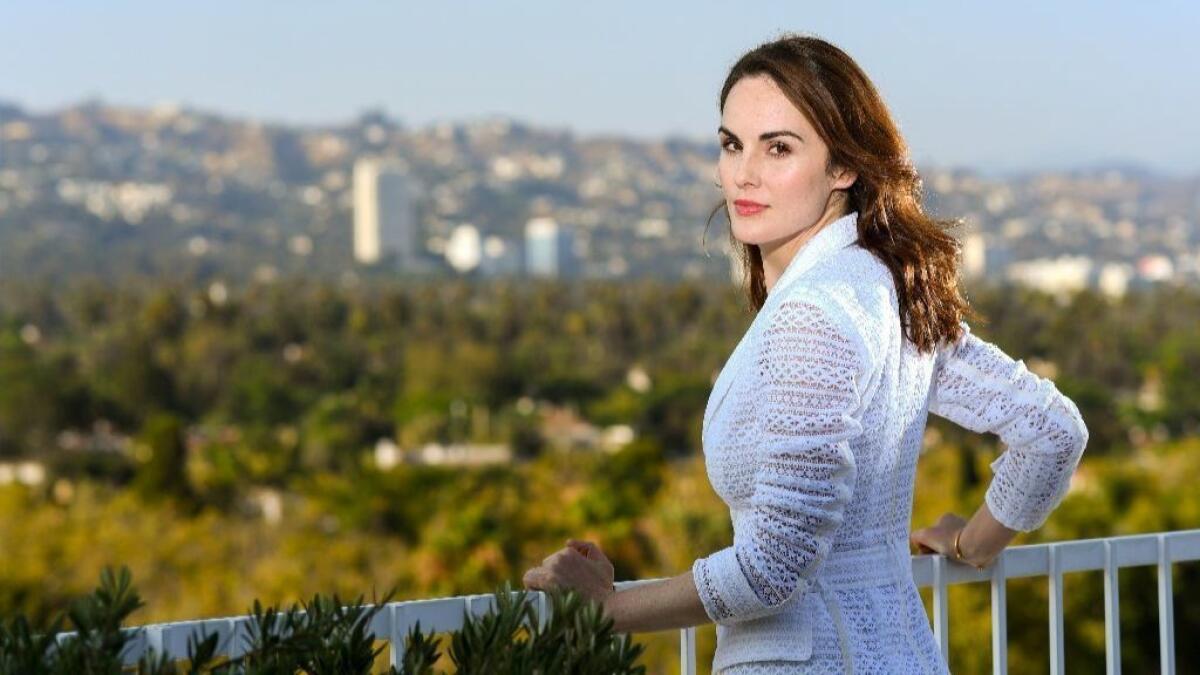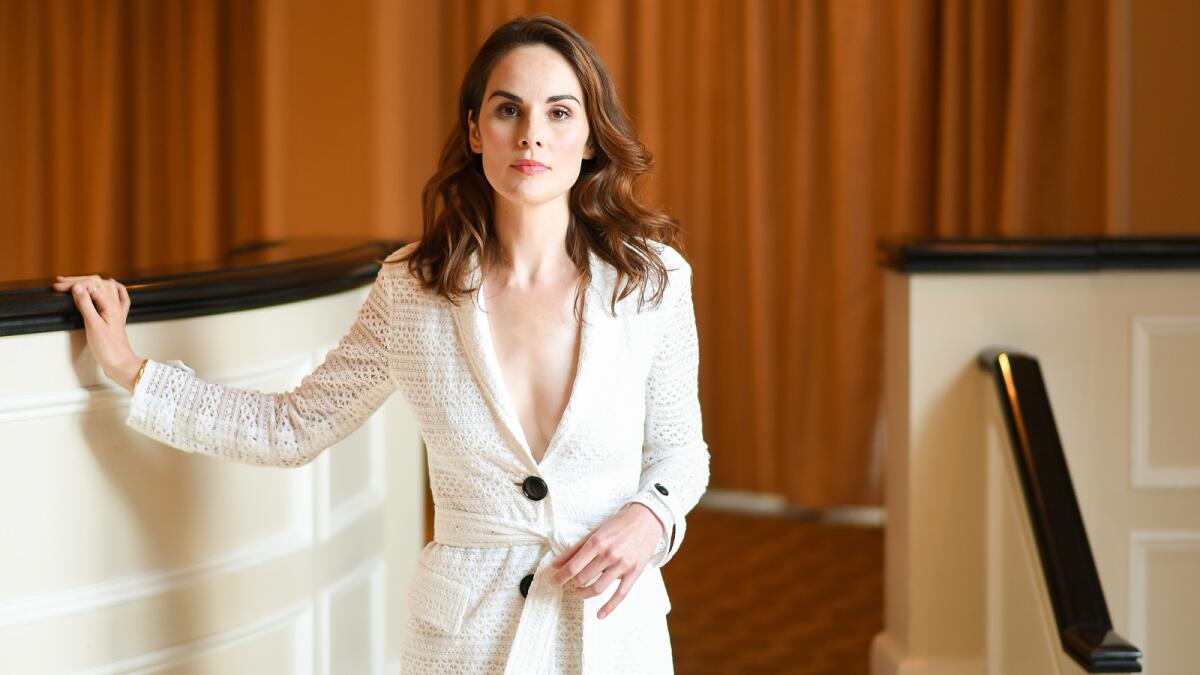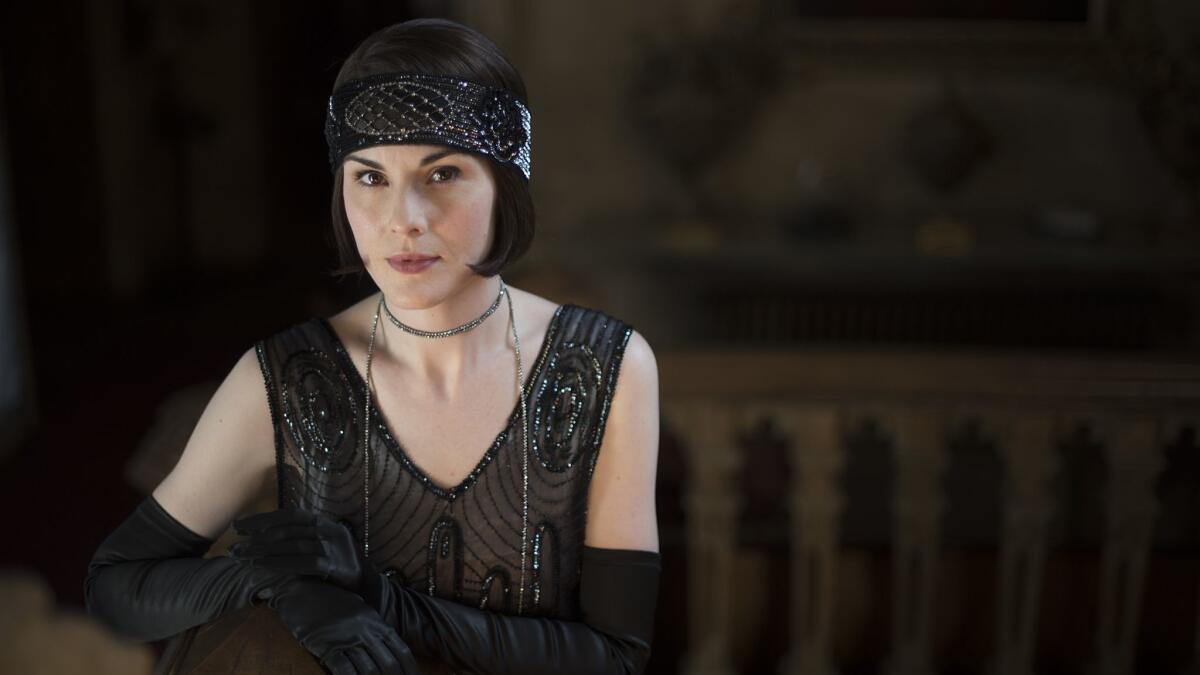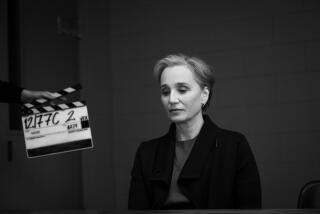Michelle Dockery puts Lady Mary behind her to wield a gun on the western ‘Godless’

It’s been three years since “Downton Abbey” signed off and Michelle Dockery went from being Lady Mary to an actress who needed her next gig. Fortunately, two came along in short order: TNT’s “Good Behavior,” which wrapped its second season in December with no word yet as to a third, and Netflix’s 2017 limited series “Godless.” In both, she’s played pretty much the opposite of upright Mary: a con artist finding love and a Western widow, respectively. But don’t think she’s left her “Downton” days behind – as Dockery tells The Envelope, she’ll only be concerned about that series trailing her when people stop bringing it up.
Between “Good Behavior” and “Godless,” you’re handling about 100% more guns than you ever did on “Downton Abbey.” Was it a conscious decision to do something very different than Lady Mary?
Way more! Until “Good Behavior,” I had never held a gun in my life, thankfully. After “Downton,” if there was a period piece that was amazing I would have taken it, but I never set out to do things or play roles that are vastly different just for the sake of it.
WATCH: Video Q&A’s from this season’s hottest contenders »
Were you worried for a time that you might get typecast into every BBC costume drama ever made?
Mary is a role I will always be remembered for. But it’s out of your hands — people like [“Godless” creator] Scott Frank were doubtful, because he only knew me as Lady Mary. My audition tape is what convinced him I could play Alice. This career takes a hell of a lot of patience for different reasons, but I’m very lucky. I seem to be playing American now all the time.
Americans are regularly fascinated with British royalty, like on “Downton.” Do you think there’s a similar fascination for the British with the American West, like in “Godless”?
Absolutely. It’s so far from what we know. I never dreamed I’d be in a western, that that would be something I would be offered. Generally, it’s a sandbox you don’t get to play in often. And it’s about a town solely made up of women and children, which was common in those times. But it’s a story that hasn’t been told.
What was it about Letty on “Good Behavior” and Alice on “Godless” that drew you? Are you more like the western pioneer or the con artist?
I was instantly drawn to both for different reasons. I related to Letty on so many levels. You don’t have to have a drug addiction or be a thief to relate to her, and she was a character I hadn’t read about before or seen on television or in film. We’re seeing much more of that now — women who aren’t just the wife or the lover.
That’s obviously a positive development in scripts; do you, as much as you’re able, insist on female roles that have greater dimension?
Sure. We can’t go back now. I feel very strongly about that. I still see it now — I read things and think, “We’ve moved on from that character.” It’s important not to accept roles that aren’t anything other than that. Because it ends up being frustrating to play – it becomes a struggle to find [the character] during the job. With “Network” [the National Theater’s adaptation of the 1976 film that Dockery recently costarred in with Bryan Cranston], as fascinating a character as Diana is, I found something old-fashioned about that part. I had to look harder for the reasons why she does what she does because there’s no explanation.

When you first got into acting as a young woman, what was your epiphany? How did you decide this was for you?
Dance was my thing for a long time; I auditioned for two musicals when I was 16, and I didn’t get them. My life could have been very different if I had. But I had a drama teacher who was very encouraging, and she helped me apply for the National Youth Theater. I walked into a room of 25 young actors and I’d found home. That was it for me.
Are you looking forward to the day when “Downton” isn’t the first line of every interview you end up doing?
I feel the opposite. I would worry if people didn’t mention it. It’s always going to be part of my life. It would be lovely if “Downton” continued, and people watched it time and time again. I never have the feeling that I don’t want to talk about it. I’m very proud of it. I wouldn’t be where I am without it.

More to Read
From the Oscars to the Emmys.
Get the Envelope newsletter for exclusive awards season coverage, behind-the-scenes stories from the Envelope podcast and columnist Glenn Whipp’s must-read analysis.
You may occasionally receive promotional content from the Los Angeles Times.






